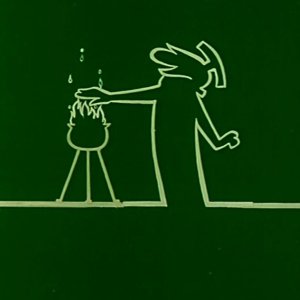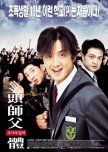Această recenzie poate conține spoilere
Watch it for the insights into South Korean society.
This film, from 2001, is in my eyes more interesting for its historical value and the insights it gives into South Korean society then -- and now -- than for its own merit.
The story itself is okay-ish, I did not laugh that much even if it was supposed to be a comedy (there was too much violence against innocents for that). In the storytelling, the directing and the camera work we can see the roots of today's masterpieces, it's still uneven but there are also brilliant scenes.
For that, and the insights into society, I'll give eight stars.
I have been thinking for a while now that violence seems to pervade South Korean's society (which is not that surprising, considering people lived under a military regime until 1987, and also the strictly hierarchical structure that's still there). In this movie, this idea was confirmed.
Yes, it's a film about gangsters, and a comedy, so a certain amount of violence is to be expected. But let's have a look at the different situations where people use force:
1. The violence amongst the gangsters is, as I said, expected. But I want to point out one aspect -- the boss casually slaps around his subordinate. If you've seen other K-Dramas, you've probably seen this kind of violence a lot. It's only interesting in the light of ...
... 2. the bullying of the newbie by the class bully and his cronies, which is probably intended as funny. The roles are inverted, the boss is now the victim and can't fight back (because he, in turn, is pressured by HIS boss to get an education). The bully, in turn is ...
... 3. bullied by another gangs of students. Violence begets violence -- but this circle of violence is not even worth mentioning for the protagonists. Instead the main character "defeats" the bullies by beating them up.
4. Teachers slap their students around habitually. This was, until a few years ago, a practice condoned by society in South Korea. I don't know if it still is. Slapping, beating students when they are already on the ground, beating them with sticks -- all of it is obvously "okay".
4. The violence against teachers (by students, by parents) is, in contrast, very much condemned.
So, violence against subordinates, against those lower in seniority, against those lower in status -- this is absolutely all right in this movie. As media are just a mirror of society, this is what people who are now adults, have learned. You can see this in the interaction between fathers and sons, between bosses and subordinates. It becomes clear when an older man in a drama has difficulties to understand that young people (especially women, but that's a whole other kettle of fish) are allowed to speak their minds.
If you, dear reader of this review, watch your next K-Drama, maybe keep this in mind while interpreting the drama, you might see certain scenes in a new light.
The story itself is okay-ish, I did not laugh that much even if it was supposed to be a comedy (there was too much violence against innocents for that). In the storytelling, the directing and the camera work we can see the roots of today's masterpieces, it's still uneven but there are also brilliant scenes.
For that, and the insights into society, I'll give eight stars.
I have been thinking for a while now that violence seems to pervade South Korean's society (which is not that surprising, considering people lived under a military regime until 1987, and also the strictly hierarchical structure that's still there). In this movie, this idea was confirmed.
Yes, it's a film about gangsters, and a comedy, so a certain amount of violence is to be expected. But let's have a look at the different situations where people use force:
1. The violence amongst the gangsters is, as I said, expected. But I want to point out one aspect -- the boss casually slaps around his subordinate. If you've seen other K-Dramas, you've probably seen this kind of violence a lot. It's only interesting in the light of ...
... 2. the bullying of the newbie by the class bully and his cronies, which is probably intended as funny. The roles are inverted, the boss is now the victim and can't fight back (because he, in turn, is pressured by HIS boss to get an education). The bully, in turn is ...
... 3. bullied by another gangs of students. Violence begets violence -- but this circle of violence is not even worth mentioning for the protagonists. Instead the main character "defeats" the bullies by beating them up.
4. Teachers slap their students around habitually. This was, until a few years ago, a practice condoned by society in South Korea. I don't know if it still is. Slapping, beating students when they are already on the ground, beating them with sticks -- all of it is obvously "okay".
4. The violence against teachers (by students, by parents) is, in contrast, very much condemned.
So, violence against subordinates, against those lower in seniority, against those lower in status -- this is absolutely all right in this movie. As media are just a mirror of society, this is what people who are now adults, have learned. You can see this in the interaction between fathers and sons, between bosses and subordinates. It becomes clear when an older man in a drama has difficulties to understand that young people (especially women, but that's a whole other kettle of fish) are allowed to speak their minds.
If you, dear reader of this review, watch your next K-Drama, maybe keep this in mind while interpreting the drama, you might see certain scenes in a new light.
Considerați utilă această recenzie?


 2
2











